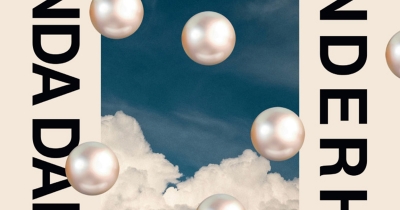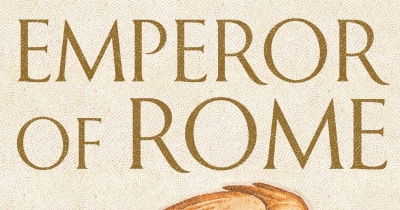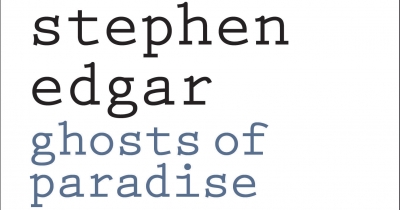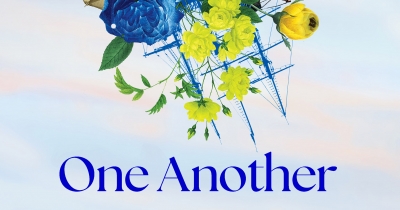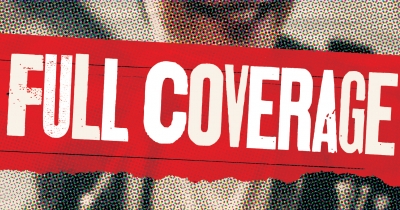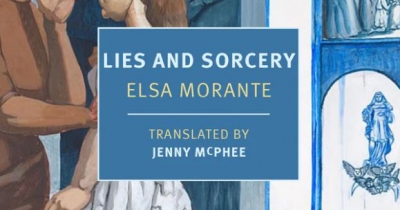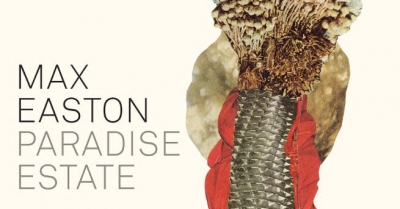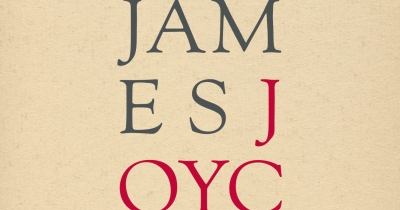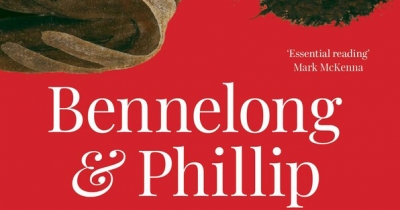Book of the Week
Sign up to Book of the Week and receive a new review to your inbox every Monday. Always free to read.
Recent:
A feminist triumph and homage to Virginia Woolf, Miranda Darling’s Thunderhead is a potent exploration of suburban entrapment for women. The novella opens with a complex satire of Ian McEwan’s response to Woolf’s Mrs Dalloway (1925) in his novel Saturday (2005). All three books are set over the course of a single day, where the intricacies of both the quotidian and extraordinary occur. In this novella’s opening paragraphs, Darling’s protagonist, Winona Dalloway, wakes to see the sky ablaze through her window. While ‘it is dawn in the suburbs of the east’ – rather than a burning plane, evoking 9/11 terrorism, as in McEwan’s novel – she believes it ‘telegraphs a warning, red sky in the morning’. This refers to the opening of Mrs Dalloway, where Clarissa Dalloway feels, ‘standing there at the open window, that something awful was about to happen’.
... (read more)A Memoir of My Former Self: A life in writing by Hilary Mantel, edited by Nicholas Pearson
In the title piece of this posthumous selection of reviews, criticism, essays, and journalism, Hilary Mantel describes how she once visited an irritating psychic she nicknamed ‘Twerp’ in order to guide her back to her former self: ‘I didn’t necessarily think I had a past life, but I wanted to know how it would feel if I did.’ Her former self turns out to have been a ‘miserable illegitimate infant’ called Sara, born to a family of millworkers in the north of England. Sara isn’t an unlikely candidate: Mantel’s mother worked in a cotton mill from the age of fourteen, as did her maternal grandmother, who left school aged twelve; Mantel’s great-grandmother had been illiterate. Mantel comes from ‘a long line of nobodies’. All that ‘Twerp’ wants to ask Sara is whether or not she is courting, when the real love of Sara’s life is Billy, her white bull terrier. ‘If Sara had slapped him,’ Mantel wonders, ‘what sort of a defence would I have had to a charge of assault?’
... (read more)Emperor of Rome: Ruling the ancient Roman world by Mary Beard
Those Roman emperors were a funny lot: Nero with his lyre, Caligula with his speedy horse; Elagabalus with his whoopee cushion (what japes he played on guests who came to dinner!). Mary Beard’s new book spills the tea on all the well-known eccentric autocrats who ruled the Roman world. And what a bunch of oddities they were. Hard to believe that they could have wielded so much power so effectively for so long. Yet Beard’s book is not really about the tittle-tattle. It is, above all, about the idea of Rome’s emperor: that fictitious, hypocritical, and probably accidental conceit by which Octavian/Augustus contrived to be something other than a conventional king. Beard’s answer to the apparent paradox of so many weird mediocrities wielding supreme power is that Roman autocracy was, from its first moment, an act, even a sham. ‘One-man rule’ required a huge supporting, and colluding, cast – from wives and mothers to senators, slaves, and freedmen. Beard explains how the pretence was kept up during its supposedly golden phase: from Actium in 27 bce to Alexander Severus’s murder in 235 ce. Fans of ancient history will certainly enjoy her prose.
... (read more)With a title like Ghosts of Paradise, it is no surprise that Stephen Edgar’s latest poetry collection is haunted by loss, mutability, and mortality – the great traditional themes of elegiac poetry. But Edgar’s poetry has long, if not always, been characteristically elegiac. In this new collection, Edgar’s first since winning the Prime Minister’s Award for poetry in 2021 (and his first for Pitt Street Poetry), the poems are haunted by the poet’s late parents, late fellow poets (especially W.B. Yeats, but also the Australian poet Robert Adamson, for whom there is an elegy), and ancient poetic forms, such as the sonnet. The collection also includes meditations on ageing, corpses, and photographs (including Roland Barthes’ ‘theory / That every photo is a memento mori’). An interest in the intertwining of memory, embodiment, and visual representation is powerfully realised in ‘Still Life’, in which the memory of a trip to Broken Hill is
... (read more)It is 1992, the year of the Mabo judgment, and Helen, a scholarship student from Tasmania, is undertaking a PhD at Cambridge, writing a thesis titled ‘Cryptomodernism and Empire’. It is on Joseph Conrad, a writer about whom her peers are contemptuous. Helen is dealing with a forlorn and dismissive supervisor, and the disappointment that her experience abroad was not what she had expected. Her ‘fantasy of vigorous literary talk, multisyllabic and theoretical, was soon defeated’.
... (read more)Full Coverage: A history of rock journalism in Australia by Samuel J. Fell
In the film Almost Famous (2000), director Cameron Crowe’s alter ego, fifteen-year-old William Miller, doggedly pursues his dream of breaking into rock journalism. He cold-calls legendary music journalist Lester Bangs (marvellously played by a dishevelled Philip Seymour Hoffman). Next thing we know, he is commissioned by Rolling Stone editor Ben Fong-Torres to head out on the road with fictitious band Stillwater to write a story that ends up on the cover of Rolling Stone. If only it were that easy.
... (read more)Lies and Sorcery by Elsa Morante, translated by Jenny McPhee
Elena Ferrante declared Elsa Morante’s début novel Menzogna e sortilegio (1948) ‘fundamental’ to her literary formation. The novel is now available unabridged in English for the first time as Lies and Sorcery, in a brilliant translation by Jenny McPhee.
Like Ferrante’s Neapolitan quartet, Morante’s novel begins with the loss of the woman closest to the narrator, propelling a first-person epic to recover a shared past. However, this novel has little of the visceral realism that Ferrante has become famous for in the Anglophone world. It is instead a delirious mix of ghost story, romantic epic, and Künstlerroman that remains almost as difficult to categorise today as when it was published at the height of Italian neorealism.
... (read more)Max Easton’s second novel begins in early 2022 when an ensemble of thirty-somethings loosely connected through mutual friends and subcultural scenes decide to lease a four-bedroom share house. The house in Sydney has its flaws. Mould colonies grow on ceilings and walls in a ‘rich spectrum’, aided by a series of La Niña weather events. Situated just off a main road and surrounded by high-rise apartment buildings, the property offers little in the way of privacy. The fascia gutters are blocked by champagne corks popped from the apartment balconies above.
... (read more)The death of Gabrielle Carey earlier this year was a cruel loss for the Australian literary world, especially its Joyce community. I first met Gabrielle shortly after moving to Sydney from London in 2010. She invited me to her annual Bloomsday celebration, which took place in a Glebe pub. I was new in town and delighted to join the readings and revelry. I suspected, rightly, that my Dublin accent would glean me some credibility, if nothing else did.
... (read more)Bennelong & Phillip: A history unravelled by Kate Fullagar
The story of the extended encounter between Eora Aboriginal man Bennelong and Arthur Phillip, first governor of the British colony at Sydney, has often been told as both emblematic and predictive of the history of British possession of Australia, and of Aboriginal dispossession. Historians such as Grace Karskens and Keith Vincent Smith have peeled back the layers of this narrative to find ways of telling more complex, contextualised, and open-ended stories. Fullagar reaches a new stage in this journey, and the journey of Australian history more generally. She offers a fresh perspective on Bennelong and Phillip, on the nature of their exchange and the broader currents in which they swam.
... (read more)


